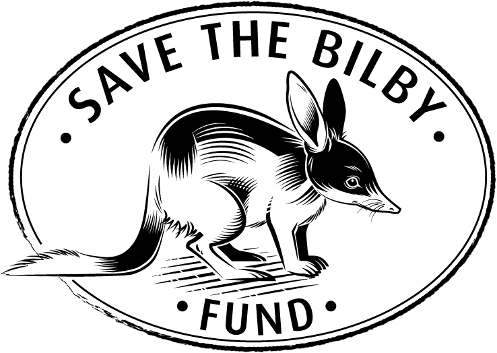Bilby Tracks Tour
Citizen Science and Conservation Support in the Queensland Outback
Bilby Tracks is an educational program operating in part inside the Bilby Fence – a predator- exclusion area at Currawinya National Park in western Queensland.
By engaging interested individuals we are also able to conduct important fence checks in this remote area.
2021 Bilby Tracks Tour Details
UPDATE: Unfortunately, due to COVID-19 the Bilby Tracks program will not run during 2021.
Note that the trips only run if we get adequate numbers and are subject to cancellation if unseasonal heavy rains close roads in the region.
If you are keen to receive updates on future ‘Bilby Tracks’ trips, please join our bilby tracks mailing list HERE.
Currawinya National Park falls close to the centre of the bilby’s former range in eastern Australia. Weather conditions there provide a reliable and diverse food supply. The reintroduction of bilbies to this park forms part of a national strategy to recover endangered species to either their former status or at a minimum to secure the status of existing wild populations.
The Bilby Fence at Currawinya National Park was designed to protect bilbies from feral animals and predators to enable them to live and breed in safety. It opened in 2003 and cost $500 000 to build the 25sq km electrified predator-exclusion fence.
Much of the money raised came from selling thousands of panels of the fence. This engaged the community and supporters in helping to save this species. Some of first Bilby Trackers in 2016 had bought panels of the fence!
The key features of the fence are:
the 400mm wire netting ‘skirt’ at the base of the fence on each side blocks invaders from burrowing in and bilbies burrowing out under the fence
4,100 short ‘springy’ wires pull the netting across to create a ‘floppy top’ which stops foxes and cats climbing over it
5,000 volts of electricity pulse through six surrounding wires, preventing emus and kangaroos from crashing into and damaging the netting.
The Fund has sign a memorandum of understanding with the Queensland Government which committed $700,000 to replacing the bottom panel of the fence with stainless steel wire to make it impervious to corrosion from future flooding events. The government completed the work in 2018.
*Itinerary will be released prior to the next tour.
Please consider the following five factors first. If this trip is still for you keep reading….
Tent camping
Remote location very limited, if any, internet or mobile coverage
Dry and at times extreme heat is a serious risk factor
Itinerary subject to unforeseen changes
Bilby releases into the park are not guaranteed
This is a camping trip. Tents and most meals are supplied for the bus trip. We can accommodate special dietary needs. You need to provide your own sleeping bag and personal items.
A detailed list of what to bring list will be provided once you have registered for the trip.
This is a remote location without immediate access to emergency services and medical assistance. We are very conscious of your safety and take all the precautions we can. You will be fully briefed on all health and safety procedures at the induction in Charleville.
Internet coverage is intermittent outside of Charleville. Satellite phones will be available for co-ordinating working parties in the field.
Average temperatures
September – between 26 and 9 deg. C (expect conditions of PLUS OR MINUS EIGHT DEGREES beyond these averages). Note these temperatures are taken in the shade.
November – between 33 and 17 deg. C (expect conditions of PLUS OR MINUS EIGHT DEGREES or more beyond these averages), Note these temperatures are taken in the shade.
May – between 26 and 11 deg. C
July – between 19 and 4 deg. C
The fieldwork inside the Bilby Fence will require a moderate level of fitness and you will be required to undertake up to six hours of research-related fieldwork per day. Days on most trips will start early to avoid the heat in the middle of the day in the warmer months. This work is essential for preparing the area and refining techniques inside the predator-exclusion fence prior to re-releasing bilbies. There are no bilbies there at present and the first release is being planned.
You must be over 18 to participate.
You will be provided with all the necessary training and guidance from experienced researchers and fieldwork experts to participate in the following types of activities.
- Resetting and checking cameras inside the Bilby Fence
- Mounting new cameras outside the fence
- Vegetation surveys using established BioCondition transects
- Observing native and introduced animal tracks and sign to learn about their abundance and movements
- Testing field equipment
checking integrity of Bilby Fence - Assisting researchers set up a new project to monitor the behaviour of the released bilbies and their subsequent population growth.
There will be talks at night by researchers, rangers and experts with local knowledge on the natural history, conservation and ecology of the region.
More details on all this will be available closer to the departure date.
Price guide from 2019 Tour
Full price – $2,200
Concession price* – $1,980
*Pensioners and previous Bilby Trackers
There is also a special companions price for those travelling together of $3,960.
Cost includes most meals, camping fees and return travel by luxury coach ex Brisbane (including your transport during the program).
Note: There may also be self-drive trips where you must largely self cater and have your own transport – we will announce this if it is an option later in the year.
